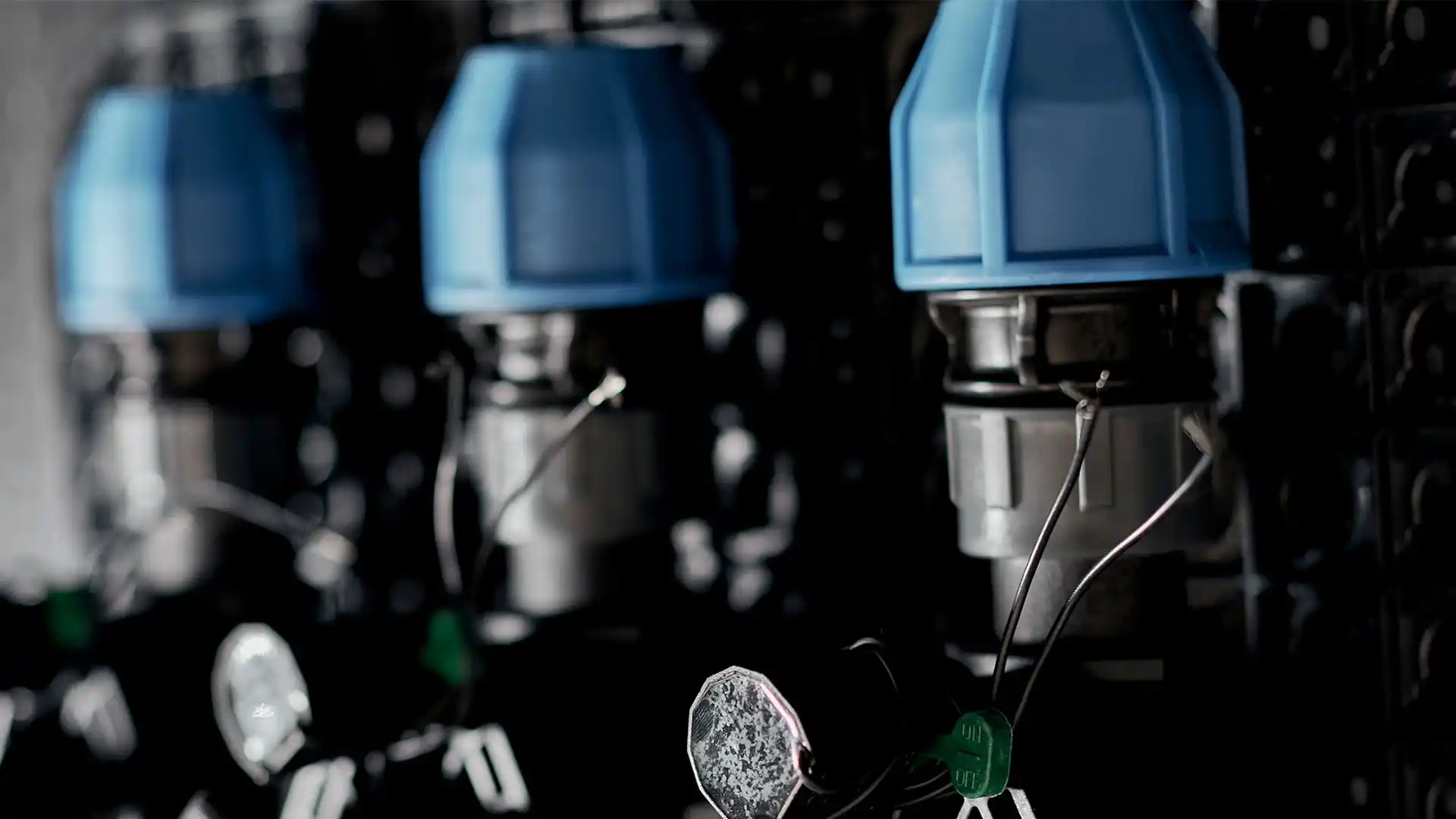
Blog
Irrigation Pipe Fittings: How to Choose the Right Ones
6 June 2025
Quando si parla di impianti di irrigazione, c’è un elemento spesso sottovalutato: i raccordi per i tubi. La scelta del raccordo giusto non è banale: incide infatti su durata, efficienza e manutenzione dell’impianto. Per evitare perdite o rotture, è importante scegliere il raccordo corretto.
In questa guida facciamo chiarezza tra raccordi a compressione, raccordi in PVC e altri tipi, partendo dal principio che non tutti i raccordi sono uguali.
When it comes to irrigation systems, there’s one component that’s often overlooked: pipe fittings. Choosing the right fitting is far from trivial – it directly affects the durability, efficiency, and maintenance of the system. To avoid leaks or breakages, selecting the correct fitting is essential.
In this guide, we’ll clarify the differences between compression fittings, PVC fittings, and other types, starting from the principle that not all fittings are created equal.
What Are Irrigation Fittings For?
Fittings are the connectors that join different sections of an irrigation system: main pipes, branches, valves, drippers, and other components. They are structural nodes that ensure water reaches its destination without leaks.
Their role is both mechanical and hydraulic. It’s not enough for them to simply fit together – they must also withstand time, temperature fluctuations, and water pressure.
Depending on the system, fittings may:
- Connect pipes of different diameters or materials
- Manage direction changes, branches, inlets, or closures
- Ensure a watertight seal, with or without adhesive
- Simplify installation and maintenance
Key Factors When Choosing Fittings
Selecting the right fittings depends on several technical variables. Before choosing, ask yourself:
- What type of pipe am I connecting? Polyethylene, PVC, dripline…
- What pressure does the system operate under? Low or high? Gravity-fed or pump-driven?
- Where will the fitting be installed? On the surface, underground, exposed to sunlight?
- Do I need a rigid or flexible connection?
- How often will maintenance be required? Should the fitting be removable?
These considerations will guide your choice of both material and connection type.
Main Types of Irrigation Fittings
Every system has its own needs – and each need has its ideal fitting. Here’s an overview of the most common types and their recommended uses:
Compression Fittings
Widely used in professional systems, especially with polyethylene pipes. They offer reliable sealing even under medium pressure. Ideal where flexibility, easy assembly/disassembly, and limited accessibility are key.
PVC Fittings
Perfect for fixed, rigid systems and main distribution lines. Resistant to constant pressure, chemicals, and UV rays. Best suited for long-term stability.
Rapid Lock Fittings
Designed for quick and secure connections. These use a bayonet or snap-lock mechanism – no tools required.
Saddle Fittings
Used to branch off from main lines. Mounted directly onto the main pipe with a gasket – perfect for drippers or micro-irrigation.
Q-Saddle Fittings
Durable and versatile, compatible with both 32 mm and 25 mm pipes, thanks to the diameter reduction.
PP Fittings
Lightweight, corrosion-resistant, and suitable for low to medium pressure systems. Great for chemically aggressive environments or cost-effective installations.
Barbed Fittings
Designed for specific applications, such as connecting to specialised pipes or technical accessories. Often used in combination with other systems.
4 mm Fittings
Small but mighty – these are the heroes of micro-irrigation. They connect capillary tubes, drippers, and micro-sprayers. Ideal for greenhouses, vegetable gardens, and flowerbeds.
Articulated Fittings
When the line isn’t straight, these come into play. They allow directional adjustment and compensate for misalignments or curves. Useful in tight or irregular spaces.
Common Mistakes and Practical Tips
Before handling pipes and fittings, it’s wise to map out all connection points. Knowing in advance where and how each part will connect helps avoid surprises during installation.
It often happens, for example, that the internal diameter of the pipe is chosen incorrectly—a common mistake that can lead to leaks or force awkward fittings. It can also occur that incompatible materials are used together without the correct adapters, resulting in malfunctions or leaks. It’s not uncommon to see systems with fittings that aren’t suitable for the pressure involved, or installations lacking sealants or gaskets where they are essential.
For this reason, it’s important to carefully check diameters, materials, and the type of connection required for each pipe, because every detail matters—especially when dealing with varying pressures or challenging environments.
In areas where future intervention is likely, perhaps for maintenance or modifications, it’s wise to opt for detachable fittings, which allow for quick and easy action.
And finally, some people overlook exposure to sunlight, frost, or chemicals. If the system is exposed to the sun, don’t forget to choose UV-resistant materials—the climate can become an enemy.
Our range of irrigation fittings offers reliability, durability, and ease of use for every type of system. From compression fittings for polyethylene to rigid PVC connectors, our products are designed to withstand time and simplify the work of irrigation professionals.
Discover the latest innovations
in irrigation systems!